5 nov 2019
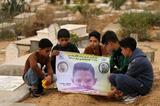
Friends of 15-year-old Palestinian Mohammed Ibrahim Ayoub, who was shot and killed by Israeli army along the Israel-Gaza border, sit by his grave in a cemetery in Beit Lahia on 21 April, 2018
Israel's approach to international law can be summed up as 'If you do something for long enough, the world will accept it'
Since removing settlers and redeploying its armed forces to the perimeter fence in 2005, Israel has subjected Palestinians in the Gaza Strip to numerous devastating assaults, a blockade, and routine attacks on the likes of farmers and fishermen.
Many of these policies have been the subject of substantial condemnation – from Palestinians, of course, as well as Israeli and international human rights groups, and even world leaders and politicians – albeit, critically, with little concrete action at the state level.
Israel, however, has sought to thwart even the possibility of meaningful accountability. Its approach has been very simple: in the face of criticism for breaking the law, change the law.
Providing cover
More precisely, Israel has been working hard to develop, and promote, interpretations of international law that provide cover for its policies and tactics in the Gaza Strip.
In January 2009, in the aftermath of an Israeli offensive that led to the UN-commissioned Goldstone report, a lengthy piece was published in Haaretz on the work being done by the international law division within the Military Advocate General’s office.
These are the officials responsible for vetting (or perhaps rubber-stamping) the military’s actions and tactics, and providing legal justification for such actions.
One of the interviewees in the article was Daniel Reisner, who had earlier served as the head of the international law division. “If you do something for long enough, the world will accept it,” he said. “The whole of international law is now based on the notion that an act that is forbidden today becomes permissible if executed by enough countries … International law progresses through violations.”
It is the Gaza Strip that Israel has used as a laboratory for such “progressive” violations. One example is the status of Gaza itself. Since 2005, Israel’s position has been that Gaza is neither occupied nor sovereign, but rather constitutes a “hostile entity”.
In her recent book Justice for Some, scholar Noura Erakat spells out the implications of such a designation, which renders Gaza “neither a state wherein Palestinians have the right to police and protect themselves nor an occupied territory whose civilian population Israel had a duty to protect”.
“In effect, Israel usurped the right of Palestinians to defend themselves because they did not belong to an embryonic sovereign, relinquished its obligations as an occupying power, and expanded its right to unleash military force, thus rendering Palestinians in the Gaza Strip triply vulnerable,” Erakat noted.
Deliberate targeting
The claim that the Gaza Strip is no longer occupied is, of course, flawed, not least because Israel has retained effective control over the territory. Its armed forces enter at will on land and at sea, and Israel retains control over Gaza’s airspace, electromagnetic spectrum, most entry-exit points and the population registry – in addition to the ongoing blockade.
The Gaza Strip is merely one part of the occupied Palestinian territory, along with the West Bank (including East Jerusalem), that forms a single territorial entity. Gaza’s occupied status since 2005 has thus been affirmed by numerous relevant bodies, including the UN Security Council.
Israeli officials’ legal “creativity” is most frequently demonstrated by some of the tactics adopted by the Israeli military during assaults.
During the 2014 Israeli offensive on Gaza, 142 Palestinian families had three or more members killed in the same incident. Such shocking figures were partly the result of Israel deliberately targeting dozens of Palestinian family homes, in addition to those struck as a result of indiscriminate bombardment.
Key here was Israel’s determination that any (alleged) member of an armed Palestinian faction was a legitimate target, even when they were not participating in fighting – ie, at home with their families – and that family members became legitimate “collateral damage” on account of the presence of a suspect in the home (even, by the way, if that individual wasn’t actually at home at the time). As one Israeli official put it: “You call it a home, we call it a command centre.”
Civilian casualties
Despite the fact that under international law, Israel needed to show that any targeted structure was performing a military function, as rights group B’Tselem described, “no official claimed that there was any connection between a house that was targeted and any specific military activity there”.
Therefore, the Israeli military’s explanations for the destruction of homes appeared “to be no more than a cover-up for the actual reason for the destruction, namely the identity of the occupants” – that is to say, these were “punitive house demolitions … carried out from the air, with occupants still inside”.
Another tactic used by the Israeli military is the issuing of “warnings” to civilians, whether in the form of phone calls or text messages to specific properties, or leaflets dropped to entire neighbourhoods. Israel presents this tactic as evidence that it goes out of its way to avoid civilian casualties, even though such warnings are, in fact, an obligation rather than “acts of charity”.
Crucially, of course, such warnings do not remove protected status from civilian residents. However, there is good evidence to suggest that this is not a view shared within the Israeli military.
In the aforementioned 2009 Haaretz article, one official said: “The people who go into a house despite a warning do not have to be taken into account in terms of injury to civilians, because they are voluntary human shields. From the legal point of view, I do not have to show consideration for them.”
So, in a disturbing twist, while warnings are presented as minimising civilian casualties, in reality, they serve to facilitate the attacks and can even contribute to the death toll.
Normalising illegality
These are just a few examples, as Israel seeks to normalise the illegal, with two goals in mind. Note that it was after the publication of the Goldstone report that Prime Minister Benjamin Netanyahu “instructed government officials to draft proposals for changing international laws of war”.
Israel’s “innovations” in international law are thus intended to facilitate the increasingly brutal suppression of Palestinians on the ground, while internationally, such interpretations are promoted to either muddy the waters in legal fora or, ultimately, to gain support from other state parties.
It is important to remember that the problem of accountability predates more recent developments. Israel has long violated international law, and justified certain policies in legal terms – from the confiscation of land in occupied territory to the establishment of settlements.
This helps us understand that the key problem is a political one – and that the answer to how to challenge impunity and resist Israel’s “innovative” interpretations of the law is the same: political pressure.
Failure on this front will be felt most keenly by those most vulnerable – the Palestinians.
Israel's approach to international law can be summed up as 'If you do something for long enough, the world will accept it'
Since removing settlers and redeploying its armed forces to the perimeter fence in 2005, Israel has subjected Palestinians in the Gaza Strip to numerous devastating assaults, a blockade, and routine attacks on the likes of farmers and fishermen.
Many of these policies have been the subject of substantial condemnation – from Palestinians, of course, as well as Israeli and international human rights groups, and even world leaders and politicians – albeit, critically, with little concrete action at the state level.
Israel, however, has sought to thwart even the possibility of meaningful accountability. Its approach has been very simple: in the face of criticism for breaking the law, change the law.
Providing cover
More precisely, Israel has been working hard to develop, and promote, interpretations of international law that provide cover for its policies and tactics in the Gaza Strip.
In January 2009, in the aftermath of an Israeli offensive that led to the UN-commissioned Goldstone report, a lengthy piece was published in Haaretz on the work being done by the international law division within the Military Advocate General’s office.
These are the officials responsible for vetting (or perhaps rubber-stamping) the military’s actions and tactics, and providing legal justification for such actions.
One of the interviewees in the article was Daniel Reisner, who had earlier served as the head of the international law division. “If you do something for long enough, the world will accept it,” he said. “The whole of international law is now based on the notion that an act that is forbidden today becomes permissible if executed by enough countries … International law progresses through violations.”
It is the Gaza Strip that Israel has used as a laboratory for such “progressive” violations. One example is the status of Gaza itself. Since 2005, Israel’s position has been that Gaza is neither occupied nor sovereign, but rather constitutes a “hostile entity”.
In her recent book Justice for Some, scholar Noura Erakat spells out the implications of such a designation, which renders Gaza “neither a state wherein Palestinians have the right to police and protect themselves nor an occupied territory whose civilian population Israel had a duty to protect”.
“In effect, Israel usurped the right of Palestinians to defend themselves because they did not belong to an embryonic sovereign, relinquished its obligations as an occupying power, and expanded its right to unleash military force, thus rendering Palestinians in the Gaza Strip triply vulnerable,” Erakat noted.
Deliberate targeting
The claim that the Gaza Strip is no longer occupied is, of course, flawed, not least because Israel has retained effective control over the territory. Its armed forces enter at will on land and at sea, and Israel retains control over Gaza’s airspace, electromagnetic spectrum, most entry-exit points and the population registry – in addition to the ongoing blockade.
The Gaza Strip is merely one part of the occupied Palestinian territory, along with the West Bank (including East Jerusalem), that forms a single territorial entity. Gaza’s occupied status since 2005 has thus been affirmed by numerous relevant bodies, including the UN Security Council.
Israeli officials’ legal “creativity” is most frequently demonstrated by some of the tactics adopted by the Israeli military during assaults.
During the 2014 Israeli offensive on Gaza, 142 Palestinian families had three or more members killed in the same incident. Such shocking figures were partly the result of Israel deliberately targeting dozens of Palestinian family homes, in addition to those struck as a result of indiscriminate bombardment.
Key here was Israel’s determination that any (alleged) member of an armed Palestinian faction was a legitimate target, even when they were not participating in fighting – ie, at home with their families – and that family members became legitimate “collateral damage” on account of the presence of a suspect in the home (even, by the way, if that individual wasn’t actually at home at the time). As one Israeli official put it: “You call it a home, we call it a command centre.”
Civilian casualties
Despite the fact that under international law, Israel needed to show that any targeted structure was performing a military function, as rights group B’Tselem described, “no official claimed that there was any connection between a house that was targeted and any specific military activity there”.
Therefore, the Israeli military’s explanations for the destruction of homes appeared “to be no more than a cover-up for the actual reason for the destruction, namely the identity of the occupants” – that is to say, these were “punitive house demolitions … carried out from the air, with occupants still inside”.
Another tactic used by the Israeli military is the issuing of “warnings” to civilians, whether in the form of phone calls or text messages to specific properties, or leaflets dropped to entire neighbourhoods. Israel presents this tactic as evidence that it goes out of its way to avoid civilian casualties, even though such warnings are, in fact, an obligation rather than “acts of charity”.
Crucially, of course, such warnings do not remove protected status from civilian residents. However, there is good evidence to suggest that this is not a view shared within the Israeli military.
In the aforementioned 2009 Haaretz article, one official said: “The people who go into a house despite a warning do not have to be taken into account in terms of injury to civilians, because they are voluntary human shields. From the legal point of view, I do not have to show consideration for them.”
So, in a disturbing twist, while warnings are presented as minimising civilian casualties, in reality, they serve to facilitate the attacks and can even contribute to the death toll.
Normalising illegality
These are just a few examples, as Israel seeks to normalise the illegal, with two goals in mind. Note that it was after the publication of the Goldstone report that Prime Minister Benjamin Netanyahu “instructed government officials to draft proposals for changing international laws of war”.
Israel’s “innovations” in international law are thus intended to facilitate the increasingly brutal suppression of Palestinians on the ground, while internationally, such interpretations are promoted to either muddy the waters in legal fora or, ultimately, to gain support from other state parties.
It is important to remember that the problem of accountability predates more recent developments. Israel has long violated international law, and justified certain policies in legal terms – from the confiscation of land in occupied territory to the establishment of settlements.
This helps us understand that the key problem is a political one – and that the answer to how to challenge impunity and resist Israel’s “innovative” interpretations of the law is the same: political pressure.
Failure on this front will be felt most keenly by those most vulnerable – the Palestinians.
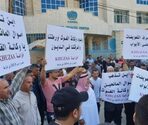
Palestinians who lost their homes due to the Israeli invasion and bombardment of Gaza in 2014 held a protest on Tuesday in Khuza’a, east of Khan Younis, which was one of the most heavily bombed areas of Gaza during the 2014 invasion.
The people participating in the protest held signs demanding compensation to be able to rebuild their homes – many of which remain in complete rubble since the massive bombardment five years ago.
Around 1,000 Palestinian families have yet to receive any compensation to be able to rebuild what they lost during the Israeli attack.
The protesters called on the United Nations to take action to compensate the families, to be able to construct some shelter before winter begins in Gaza.
Some of the protesters recited poems and others chanted for justice.
One of the protest organizers, Salah al-Najjar, said they were targeting the United Nations agency UNRWA — which was recently de-funded by the U.S. Administration of Donald Trump.
Najjar told reporters that the message of the demonstrators is that their patience is running out, as the Gazan economy is in freefall, and they have been unable to rebuild their homes for five years.
In the 2014 invasion of Gaza, Israel destroyed about 1,000 houses, partially and partially, in Khuza’a village east of Khan Younis in the southern Gaza Strip.
The people participating in the protest held signs demanding compensation to be able to rebuild their homes – many of which remain in complete rubble since the massive bombardment five years ago.
Around 1,000 Palestinian families have yet to receive any compensation to be able to rebuild what they lost during the Israeli attack.
The protesters called on the United Nations to take action to compensate the families, to be able to construct some shelter before winter begins in Gaza.
Some of the protesters recited poems and others chanted for justice.
One of the protest organizers, Salah al-Najjar, said they were targeting the United Nations agency UNRWA — which was recently de-funded by the U.S. Administration of Donald Trump.
Najjar told reporters that the message of the demonstrators is that their patience is running out, as the Gazan economy is in freefall, and they have been unable to rebuild their homes for five years.
In the 2014 invasion of Gaza, Israel destroyed about 1,000 houses, partially and partially, in Khuza’a village east of Khan Younis in the southern Gaza Strip.
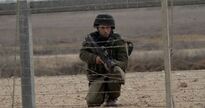
The Israeli occupation forces (IOF) opened fire at border and agricultural areas in the southeast of the Gaza Strip.
According to local sources, Israeli troops at the Kissufim military post opened fire at the border area of al-Qarara town and at cultivated plots of land in the north of Khan Younis province of southern Gaza.
Luckily, no one was hurt in the shooting attack.
According to local sources, Israeli troops at the Kissufim military post opened fire at the border area of al-Qarara town and at cultivated plots of land in the north of Khan Younis province of southern Gaza.
Luckily, no one was hurt in the shooting attack.
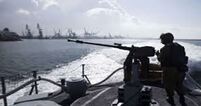
Israeli gunboats on Monday evening opened fire at Palestinian fishermen and their boats in the northern waters of the Gaza Strip.
According to a local committee, the fishermen were working within three to six nautical miles when they were came under fire from gunboats.
The intensity of the shooting forced the fishermen to go ashore.
Luckily, no one was hurt in the shooting attack.
Israeli gunboats are around Gaza fishermen almost every day, harassing them, shooting at them, damaging their boats, and making arrests. Sometimes fishermen are injured or killed during gunfire attacks.
Under the 1993 Oslo accords, Palestinian fishermen are permitted to fish up to 20 nautical miles off the coast of Gaza, but since then Israel has kept reducing the fishing area gradually to a limit of three nautical miles as part of its blockade on Gaza.
Fishermen and human rights groups also say that, since the 2008-09 war in Gaza, the Israeli army has been regularly enforcing a limit even closer to the shore.
According to a local committee, the fishermen were working within three to six nautical miles when they were came under fire from gunboats.
The intensity of the shooting forced the fishermen to go ashore.
Luckily, no one was hurt in the shooting attack.
Israeli gunboats are around Gaza fishermen almost every day, harassing them, shooting at them, damaging their boats, and making arrests. Sometimes fishermen are injured or killed during gunfire attacks.
Under the 1993 Oslo accords, Palestinian fishermen are permitted to fish up to 20 nautical miles off the coast of Gaza, but since then Israel has kept reducing the fishing area gradually to a limit of three nautical miles as part of its blockade on Gaza.
Fishermen and human rights groups also say that, since the 2008-09 war in Gaza, the Israeli army has been regularly enforcing a limit even closer to the shore.
4 nov 2019
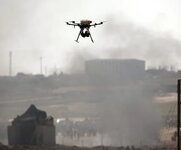
The Palestinian resistance on Sunday evening shot down an Israeli army drone in the northern airspace of the Gaza Strip.
According to SAFA news agency, an Israeli military Quadcopter drone crashed down to the ground in northern Gaza after it came under fire from resistance fighters.
The drone was used for the purpose of photography, sources from the resistance said.
The Palestinian resistance already managed several times to confiscate Israeli drones after they encountered technical problems or were shot down within the airspace of Gaza.
According to SAFA news agency, an Israeli military Quadcopter drone crashed down to the ground in northern Gaza after it came under fire from resistance fighters.
The drone was used for the purpose of photography, sources from the resistance said.
The Palestinian resistance already managed several times to confiscate Israeli drones after they encountered technical problems or were shot down within the airspace of Gaza.
3 nov 2019
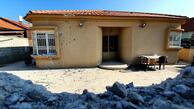
Mayor Alon Davidi points out that residents of Sderot unable to move on from their trauma, unlike rest of country, as siren's blare cripples everyday life in southern city
After another weekend was disturbed by rocket fire launched from Gaza at the southern border town of Sderot, residents and local leaders were taken back to days of fear and trauma, appealing to the government to find solutions.
Albert Abuhatzeira, a resident whose home was damaged by shrapnel in Friday's attack, spoke about the moments of horror as sirens began blaring.
"By the time we got to the shelter, there were already explosions outside as the rockets landed," said Abuhatzeira.
Abuhatzeira also shared his frustration, calling on lawmakers, and Prime Minister Benjamin Netanyahu in particular, to act against the threat posed from Gaza.
"While we are in constant distress, they just tell us that the Government's Security Cabinet will assemble. Are we second rate citizens," said Abuhatzeira. "You don't want to send troops into Gaza? Fine. We have enough great pilots in the Air Force who can debilitate the other side, something must be done".
Sderot Mayor Alon Davidi agreed with the criticism sounded by the residents, criticizing what he sees as ineptitude on the government's side, despite continued pleas from local leaders to deal Hamas a fatal blow, even if it would entail a ground incursion.
"We are unable to just get on with it. We live in a difficult reality, finding ourselves running like crazy to find a shelter all the time," said Davidi. "I told the prime minister that there is a terror campaign that has been ongoing for 18 years. Someone is making our lives miserable: Islamic Jihad's commander Baha Abu al-Ata, and while we live in fear, he walks around free".
Former chief IDF coordinator for the West Bank and Gaza, Major General Eitan Dangot said he expected the army to strike back at those responsible for launching the rockets into civilian communities.
"Under the Egyptian brokered understandings between Israel and the Gaza based terror groups, the current situation appeared beneficial for Hamas," said Dangot. "The Rafah border crossing has been opened and money has been flowing into the organization's pockets, while Israel observes the Palestinian factions build their strength".
The Islamic Jihad is following instructions from Tehran. To combat that reality Israel needs a functioning government, able to detect threats and adjust policies accordingly. Still, I don't advocate all-out war at this point".
After another weekend was disturbed by rocket fire launched from Gaza at the southern border town of Sderot, residents and local leaders were taken back to days of fear and trauma, appealing to the government to find solutions.
Albert Abuhatzeira, a resident whose home was damaged by shrapnel in Friday's attack, spoke about the moments of horror as sirens began blaring.
"By the time we got to the shelter, there were already explosions outside as the rockets landed," said Abuhatzeira.
Abuhatzeira also shared his frustration, calling on lawmakers, and Prime Minister Benjamin Netanyahu in particular, to act against the threat posed from Gaza.
"While we are in constant distress, they just tell us that the Government's Security Cabinet will assemble. Are we second rate citizens," said Abuhatzeira. "You don't want to send troops into Gaza? Fine. We have enough great pilots in the Air Force who can debilitate the other side, something must be done".
Sderot Mayor Alon Davidi agreed with the criticism sounded by the residents, criticizing what he sees as ineptitude on the government's side, despite continued pleas from local leaders to deal Hamas a fatal blow, even if it would entail a ground incursion.
"We are unable to just get on with it. We live in a difficult reality, finding ourselves running like crazy to find a shelter all the time," said Davidi. "I told the prime minister that there is a terror campaign that has been ongoing for 18 years. Someone is making our lives miserable: Islamic Jihad's commander Baha Abu al-Ata, and while we live in fear, he walks around free".
Former chief IDF coordinator for the West Bank and Gaza, Major General Eitan Dangot said he expected the army to strike back at those responsible for launching the rockets into civilian communities.
"Under the Egyptian brokered understandings between Israel and the Gaza based terror groups, the current situation appeared beneficial for Hamas," said Dangot. "The Rafah border crossing has been opened and money has been flowing into the organization's pockets, while Israel observes the Palestinian factions build their strength".
The Islamic Jihad is following instructions from Tehran. To combat that reality Israel needs a functioning government, able to detect threats and adjust policies accordingly. Still, I don't advocate all-out war at this point".
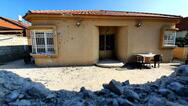
A house in Sderot which suffered a direct hit
Speaking at weekly cabinet meeting PM responds to the cross-border fighting over the weekend in Gaza, saying Israel is in a 'very sensitive' security environment to its south, north and east
The prime minister says the military will continue to strike its enemies, including through covert missions, after a weekend flareup of violence in the Gaza Strip.
Benjamin Netanyahu spoke at the weekly cabinet meeting Sunday,convened a day after Israel struck a series of sites linked to Gaza's Hamas rulers in response to a late-night barrage of rocket fire, one of which hit a house in the town of Sderot. Although no one claimed responsibility for the rockets, Israel holds Hamas responsible for all attacks coming out of the territory.
Netanyahu said Israel is in a "very sensitive" security environment to its north, south and east.
"We will continue to act in all fronts for the security of Israel, both through open means and also through secret means, at sea, in the air and on the ground," he said.
The prime minister also addressed the criticism leveled at him by the family of soldier Hadar Goldin, killed during 2014 Gaza war, known as Operation Protective Edge, and whose body has been held in the Hamas-controlled enclave ever since. The family also criticized Coordinator of POWs and MIAs Yaron Bloom for not doing enough to bring back her son.
"We will continue our efforts to return our captives and MIAs. I want to say on this issue that I have full confidence in Yaron Bloom who is doing his work in a credible, serious and professional manner.
Speaking at weekly cabinet meeting PM responds to the cross-border fighting over the weekend in Gaza, saying Israel is in a 'very sensitive' security environment to its south, north and east
The prime minister says the military will continue to strike its enemies, including through covert missions, after a weekend flareup of violence in the Gaza Strip.
Benjamin Netanyahu spoke at the weekly cabinet meeting Sunday,convened a day after Israel struck a series of sites linked to Gaza's Hamas rulers in response to a late-night barrage of rocket fire, one of which hit a house in the town of Sderot. Although no one claimed responsibility for the rockets, Israel holds Hamas responsible for all attacks coming out of the territory.
Netanyahu said Israel is in a "very sensitive" security environment to its north, south and east.
"We will continue to act in all fronts for the security of Israel, both through open means and also through secret means, at sea, in the air and on the ground," he said.
The prime minister also addressed the criticism leveled at him by the family of soldier Hadar Goldin, killed during 2014 Gaza war, known as Operation Protective Edge, and whose body has been held in the Hamas-controlled enclave ever since. The family also criticized Coordinator of POWs and MIAs Yaron Bloom for not doing enough to bring back her son.
"We will continue our efforts to return our captives and MIAs. I want to say on this issue that I have full confidence in Yaron Bloom who is doing his work in a credible, serious and professional manner.
2 nov 2019
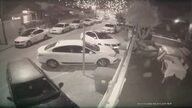
Israeli sources reported that Palestinian resistance groups fired around 8 rockets across the border from Gaza into Israel Friday night, with one of the projectiles causing slight damage to a house in southern Israel.
Israeli residents of the town of Sderot reportedly ran into bomb shelters as a siren sounded throughout the town, warning of ‘rocket fire’ from Palestinians.
According to the Israeli military, seven of the eight projectiles fired by the Palestinian resistance on Friday night were intercepted by their anti-rocket ‘defense’ system, Iron Dome.
The projectiles were fired around 9 pm, according to local sources, and Israelis in the town of Sderot went into shelters following the sounding of the siren in the town.
Israeli medics reported a single injury during the incident: a women who tripped and fell during the rush to the underground bunker.
Israeli residents of the town of Sderot reportedly ran into bomb shelters as a siren sounded throughout the town, warning of ‘rocket fire’ from Palestinians.
According to the Israeli military, seven of the eight projectiles fired by the Palestinian resistance on Friday night were intercepted by their anti-rocket ‘defense’ system, Iron Dome.
The projectiles were fired around 9 pm, according to local sources, and Israelis in the town of Sderot went into shelters following the sounding of the siren in the town.
Israeli medics reported a single injury during the incident: a women who tripped and fell during the rush to the underground bunker.
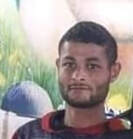
Ahmad Mohammad Shahri, 27
The Health Ministry in the besieged Gaza Strip has confirmed that one Palestinian was killed, on Saturday at dawn, and three others were injured, in Khan Younis, in the southern part of the coastal region.
The army also fired many missiles into several areas in the Gaza Strip, after alleging that “projectiles were fired from Gaza.”
Dr. Ashraf al-Qedra, the spokesperson of the Health Ministry in Gaza, said one Palestinian, identified as Ahmad Mohammad Shahri, 27, was killed by the Israeli missiles, in Khan Younis, in the southern part of the coastal region. video video video
He added that three other Palestinians were injured, before they were rushed to Nasser Hospital, in Khan Younis. video
The Israeli army claimed it was retaliating to “projectiles” that were reportedly fired from the Gaza Strip, into the nearby Negev town of Sderot.
Israeli sources did not report injuries, but stated that the Iron Dome intercepted seven shells, and added that one woman, in her sixties, was mildly wounded when she “fell while heading to a protected area.”
Very minor damage was reported in a wall of one home, while the windshields of a few cars were shattered.
Media sources in Gaza said the army fired many missiles into thirteen sites across the coastal region, causing serious property damage to several buildings and homes.
Among the targeted areas are sites run by the al-Qassam Brigades, the armed wing of Hamas, in Khan Younis and Rafah, in addition to two other sites in northern Gaza, and one in central Gaza, in addition to farmlands, east of Gaza city.
Hamas spokesperson, Fawzi Barhoum, warned Israel of the consequences of escalation against the Gaza Strip and stated that the resistance is ready for any possible scenario.
The Health Ministry in the besieged Gaza Strip has confirmed that one Palestinian was killed, on Saturday at dawn, and three others were injured, in Khan Younis, in the southern part of the coastal region.
The army also fired many missiles into several areas in the Gaza Strip, after alleging that “projectiles were fired from Gaza.”
Dr. Ashraf al-Qedra, the spokesperson of the Health Ministry in Gaza, said one Palestinian, identified as Ahmad Mohammad Shahri, 27, was killed by the Israeli missiles, in Khan Younis, in the southern part of the coastal region. video video video
He added that three other Palestinians were injured, before they were rushed to Nasser Hospital, in Khan Younis. video
The Israeli army claimed it was retaliating to “projectiles” that were reportedly fired from the Gaza Strip, into the nearby Negev town of Sderot.
Israeli sources did not report injuries, but stated that the Iron Dome intercepted seven shells, and added that one woman, in her sixties, was mildly wounded when she “fell while heading to a protected area.”
Very minor damage was reported in a wall of one home, while the windshields of a few cars were shattered.
Media sources in Gaza said the army fired many missiles into thirteen sites across the coastal region, causing serious property damage to several buildings and homes.
Among the targeted areas are sites run by the al-Qassam Brigades, the armed wing of Hamas, in Khan Younis and Rafah, in addition to two other sites in northern Gaza, and one in central Gaza, in addition to farmlands, east of Gaza city.
Hamas spokesperson, Fawzi Barhoum, warned Israel of the consequences of escalation against the Gaza Strip and stated that the resistance is ready for any possible scenario.
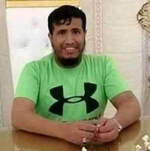
Bara’ Adel al-‘Amour, 30
The al-Qassam Brigades, the armed wing of Hamas movement, has reported that one of its fighters died, Friday, from serious wounds he suffered during the Israeli war on Gaza in the summer of 2014.
In a statement, al-Qassam said the fighter, Bara’ Adel al-‘Amour, 30, was injured in Khan Younis, in the southern part of the coastal region.
Dozens of Qassam fighters were killed during the 51-day Israeli offensive on Gaza in the summer of 2014.
During the ongoing and indiscriminatory bombardment and shelling on the Gaza Strip, the army targeted hundreds of homes, public facilities, hospitals, and medical centers, mosques, roads and infrastructure.
The al-Mezan Center for Human Rights has reported that the Israeli offensive left 2.219 Palestinians dead, most of them are civilians. Thousands more were injured, including dozens who died from their wounds, months or years later.
The Israeli bombardment and shelling resulted in the obliteration of 142 families, including women, infants, children and the elderly.
The al-Qassam Brigades, the armed wing of Hamas movement, has reported that one of its fighters died, Friday, from serious wounds he suffered during the Israeli war on Gaza in the summer of 2014.
In a statement, al-Qassam said the fighter, Bara’ Adel al-‘Amour, 30, was injured in Khan Younis, in the southern part of the coastal region.
Dozens of Qassam fighters were killed during the 51-day Israeli offensive on Gaza in the summer of 2014.
During the ongoing and indiscriminatory bombardment and shelling on the Gaza Strip, the army targeted hundreds of homes, public facilities, hospitals, and medical centers, mosques, roads and infrastructure.
The al-Mezan Center for Human Rights has reported that the Israeli offensive left 2.219 Palestinians dead, most of them are civilians. Thousands more were injured, including dozens who died from their wounds, months or years later.
The Israeli bombardment and shelling resulted in the obliteration of 142 families, including women, infants, children and the elderly.
Page: 43 - 42 - 41 - 40 - 39 - 38 - 37 - 36 - 35 - 34 - 33 - 32 - 31 - 30 - 29 - 28 - 27 - 26 - 25 - 24 - 23 - 22
Truce violations List of names Pictures of martyrs
Days: Aug: 26 - 25 - 24 - 23 - 22 - 21 - 20 - 19 - 18 - 17 - 16 - 15 - 14 - 13 - 12 - 11 - 10 - 9 - 8 - 7 - 6 - 5 - 4 - 3 - 2 - 1
July: 31 - 30 - 29 - 28 - 27 - 26 - 25 - 24 - 23 - 22 - 21 - 20 - 19 - 18 - 17 - 16 - 15 - 14 - 13 - 12 - 11 - 10 - 9 - 8
